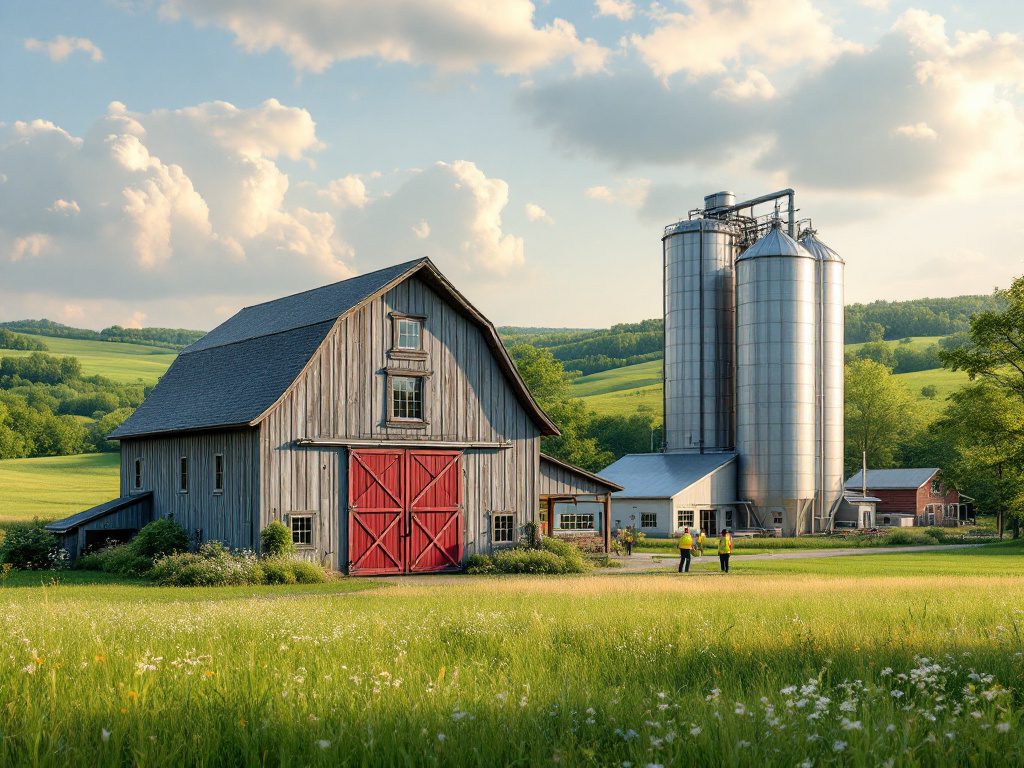From Humble Beginnings to Dairy Powerhouse
Every so often, a business story sends ripples far beyond the boardroom. Chobani’s announcement of a $1.2 billion investment in a new yogurt manufacturing plant in Rome, New York is one such moment, laden with both promise and pressure. Born from the vision of Turkish immigrant Hamdi Ulukaya, who founded the company in 2005 by reviving a shuttered Kraft factory with a handful of local workers, Chobani now stands as a defining face of America’s food landscape. This new 1.4 million-square-foot facility isn’t just company expansion — it’s a declaration that upstate New York remains essential to America’s agricultural future.
Choosing Rome after a nationwide search, Chobani signaled deep commitment to its New York origins, a decision that has brought accolades from state officials and business leaders alike. The factory, which will boast up to 28 production lines, dwarfs competitors like fairlife’s new plant in Webster. Senator Charles Schumer lauded the move as “the largest investment in natural food making in American history,” while Governor Kathy Hochul took to social media to hail the projected 1,000 new jobs. But as with all headline-grabbing investments, enthusiastic announcements can obscure the complex realities behind such megaprojects.
The Promise and Peril of Big Dairy Investment
The numbers on paper dazzle: over 1,000 jobs, an estimated 6 billion pounds of annual milk purchases from local farmers, and New York’s continued reign as America’s yogurt capital. According to the company, the Rome plant will consume roughly 12 million pounds of milk daily, a figure that already has some upstate farmers eyeing a brighter economic future. State support sweetens the deal, with as much as $73 million in performance-based Excelsior Jobs Program tax credits on offer — a renewal of Albany’s long tradition of wooing companies with tax incentives.
Is this the lifeline Upstate New York has been waiting for? According to Cornell University agricultural economist Andy Novakovic, spikes in demand can “revitalize struggling family farms,” but they also carry risks: “When the fortunes of an entire region become tied so closely to a single corporate expansion, the stakes for workers and small producers are enormous.” The region knows this story well. Across the Rust Belt and rural America, countless towns have learned that factory promises can vanish as fast as they appear — think of the shuttered mills dotting the landscape, monuments to deals gone sour.
The story of Chobani stands out in part because of its founder’s commitment to ethical capitalism and immigrant rights. Ulukaya famously instituted profit-sharing for employees and actively hired refugees for his plants — a progressive model that bucks the cutthroat model often seen in the food sector. Still, pointing to one company’s culture doesn’t erase structural problems: New York’s dairy economy operates on razor-thin margins, and consolidation has already pushed thousands of small farms out of existence. As milk prices rise and fall — often dictated by decisions far from Oneida County — local producers may find themselves newly dependent, with all the vulnerability that entails.
Who Really Wins? Navigating Corporate Incentives and Community Hopes
Public officials celebrate job creation numbers, but the reality is usually more nuanced. The $73 million tax break New York proposed is one of many such performance-based subsidies aimed at attracting large-scale employers. While intended to promote growth, critics argue that these incentives often benefit corporations more than communities. A 2023 Pew Research Center review found that, on average, “jobs promised frequently fall short of jobs delivered” and tax breaks can strain local budgets for schools and infrastructure.
“Corporate investments this size can transform a region, but without strong oversight and an ironclad commitment to community benefits, the promises of prosperity can easily be broken,” warns urban studies professor Donna Price at Syracuse University.
This is the double-edged sword facing Rome and communities like it. The animated rhetoric around job creation often mutes the anxiety about labor standards, unionization, and environmental impact. Past projects — from Amazon’s ill-fated Long Island City headquarters to the ghost towns left behind by departed auto plants — remind us to scrutinize corporate pledges and demand transparency about long-term intentions. Will Chobani’s new plant pay living wages, ensure job stability, and support worker rights? What kind of environmental oversight will accompany the daily processing of 12 million pounds of milk — a figure that carries real ecological consequences?
The new Chobani facility offers hope for a region battered by decades of economic transition. But in a state where progressive values rank high — equality, good jobs, climate responsibility — economic development must go further than ribbon cuttings and photo ops. That means holding both corporations and government accountable for delivering on their promises — not just to the bottom line, but to people, land, and future generations. “Big investments aren’t inherently good or bad,” as Harvard labor historian David Canton puts it. “What matters is whether the benefits are broad, lasting, and fairly shared.”

